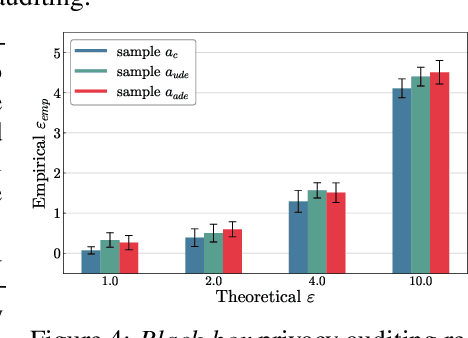Adversarial Sample-Based Approach for Tighter Privacy Auditing in Final Model-Only Scenarios
Paper and Code
Dec 02, 2024



Auditing Differentially Private Stochastic Gradient Descent (DP-SGD) in the final model setting is challenging and often results in empirical lower bounds that are significantly looser than theoretical privacy guarantees. We introduce a novel auditing method that achieves tighter empirical lower bounds without additional assumptions by crafting worst-case adversarial samples through loss-based input-space auditing. Our approach surpasses traditional canary-based heuristics and is effective in both white-box and black-box scenarios. Specifically, with a theoretical privacy budget of $\varepsilon = 10.0$, our method achieves empirical lower bounds of $6.68$ in white-box settings and $4.51$ in black-box settings, compared to the baseline of $4.11$ for MNIST. Moreover, we demonstrate that significant privacy auditing results can be achieved using in-distribution (ID) samples as canaries, obtaining an empirical lower bound of $4.33$ where traditional methods produce near-zero leakage detection. Our work offers a practical framework for reliable and accurate privacy auditing in differentially private machine learning.
 Add to Chrome
Add to Chrome Add to Firefox
Add to Firefox Add to Edge
Add to Edge